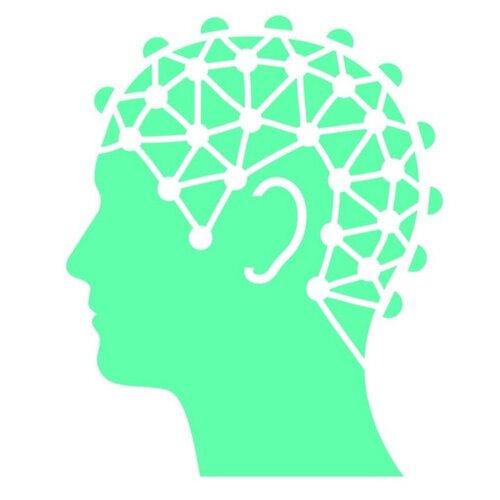Cognitive function is the cornerstone of our daily mental performance, encompassing abilities like memory, attention, learning, and problem-solving. When cognitive function declines, it can affect work productivity, relationships, and overall well-being. Neurofeedback, a cutting-edge, non-invasive therapy, has shown tremendous promise in improving brain performance and supporting cognitive function. By training the brain to produce more optimal brainwave patterns, neurofeedback enhances cognitive abilities, offering a natural and drug-free solution to boost brain health.
What is Neurofeedback?
Neurofeedback, also known as EEG biofeedback, is a therapeutic technique that uses real-time monitoring of brainwave activity to train the brain to regulate its own function. Electrodes are placed on the scalp to measure brainwave frequencies, and the data is fed back to the individual in the form of visual or auditory cues. This feedback helps the brain “learn” how to produce healthier, more efficient brainwave patterns, ultimately improving cognitive function, emotional regulation, and overall brain performance.
Neurofeedback targets areas of the brain involved in attention, memory, learning, and problem-solving, making it a powerful tool for enhancing cognitive abilities.
The Link Between Brainwaves and Cognitive Function
Brainwaves are electrical impulses in the brain that occur when neurons communicate. These brainwaves vary in frequency, and each type of brainwave is associated with different mental states. There are five main types of brainwaves:
- Delta Waves: Associated with deep sleep and restorative states.
- Theta Waves: Linked to relaxation, creativity, and deep meditation.
- Alpha Waves: Present during calm, relaxed states, promoting focus and mental clarity.
- Beta Waves: Associated with active thinking, problem-solving, and concentration.
- Gamma Waves: The fastest brainwaves, related to higher-level cognitive processing and mental performance.
When brainwaves are in sync and functioning optimally, cognitive abilities such as memory, learning, and focus operate at their best. However, when brainwave patterns are irregular or out of balance, cognitive function can decline, leading to difficulties with concentration, memory recall, and other mental tasks. Neurofeedback helps restore these patterns, leading to improved cognitive performance.
How Neurofeedback Supports Cognitive Function
Neurofeedback therapy works by training the brain to regulate its own brainwave activity. Through this process, neurofeedback supports cognitive function in several ways:
- Enhancing Memory and Learning
One of the primary benefits of neurofeedback is its ability to improve memory and learning capacity. By promoting optimal brainwave patterns, neurofeedback helps the brain improve its capacity to retain and recall information. It can also enhance the brain’s ability to process and organize new information more efficiently, which is essential for learning.
- Improving Focus and Attention
Neurofeedback has been shown to be highly effective for individuals who struggle with focus and attention, particularly those with ADHD or other concentration issues. By regulating beta and alpha wave activity, neurofeedback enhances focus and concentration, allowing individuals to stay on task for longer periods and process information more effectively.
- Boosting Mental Clarity and Problem-Solving Skills
Neurofeedback helps promote optimal brainwave activity, particularly in areas associated with cognitive function and problem-solving. By training the brain to function more efficiently, neurofeedback improves mental clarity and decision-making abilities. This allows individuals to solve problems more effectively and think critically, enhancing both personal and professional performance.
- Reducing Mental Fatigue
Mental fatigue occurs when the brain is overstressed or unable to maintain optimal function. Neurofeedback helps reduce mental fatigue by promoting balanced brainwave patterns, allowing individuals to feel more alert, energized, and focused. With regular neurofeedback sessions, individuals often experience improved mental endurance, enabling them to work or study for longer periods without feeling drained.
- Enhancing Cognitive Resilience
Cognitive resilience refers to the brain’s ability to recover from mental stress or cognitive strain. Neurofeedback strengthens cognitive resilience by helping the brain regulate its activity and maintain balance. This allows individuals to better manage cognitive stress, recover from mental fatigue, and perform at a higher level in challenging situations.
The Benefits of Neurofeedback for Cognitive Function
Neurofeedback offers numerous benefits for cognitive function, including:
- Improved Memory: Enhances the brain’s ability to store and retrieve information.
- Better Focus and Attention: Increases the ability to concentrate on tasks and block out distractions.
- Increased Mental Clarity: Improves problem-solving skills and decision-making abilities.
- Reduced Mental Fatigue: Helps the brain maintain energy and focus over longer periods.
- Enhanced Cognitive Resilience: Strengthens the brain’s ability to recover from cognitive strain and stress.
How Neurofeedback Works in Practice
Neurofeedback involves placing sensors on the scalp to monitor brainwave activity. The individual receives real-time feedback in the form of visual or auditory cues, which guide the brain in self-regulating its activity. Through repeated sessions, the brain learns to produce more optimal brainwave patterns, leading to lasting improvements in cognitive function.
Each session lasts around 30 to 45 minutes, and the number of sessions required depends on the individual’s goals and the cognitive issues being addressed. While some individuals begin to notice improvements after just a few sessions, others may require more sessions for significant results.
Is Neurofeedback Right for You?
Neurofeedback is a valuable tool for anyone seeking to improve cognitive function. Whether you’re experiencing difficulties with memory, focus, mental clarity, or fatigue, neurofeedback can help regulate brain activity and optimize cognitive performance. It’s also an excellent option for those looking to enhance their overall brain health and mental performance.
Before starting neurofeedback therapy, it’s important to consult with a trained neurofeedback practitioner who can assess your needs and create a personalized treatment plan. This ensures that the therapy targets the specific areas of brain activity that require improvement.
Conclusion
Neurofeedback is a powerful, non-invasive therapy that supports cognitive function by helping the brain regulate its activity. By improving brainwave patterns, neurofeedback enhances memory, focus, problem-solving skills, and mental clarity. It also helps reduce mental fatigue and increases cognitive resilience. Whether you’re looking to improve mental performance for work, school, or daily life, neurofeedback offers a safe, drug-free solution to optimize brain health and function.

